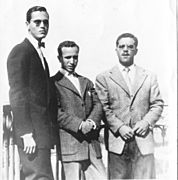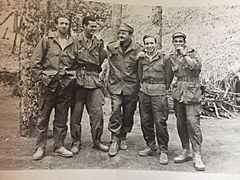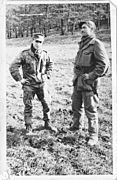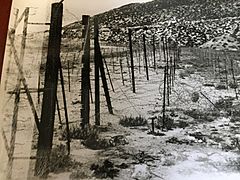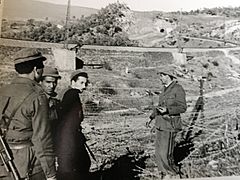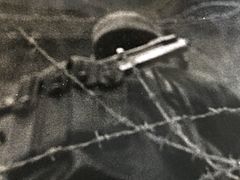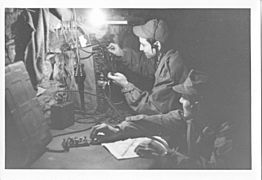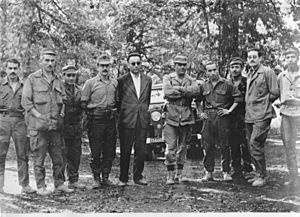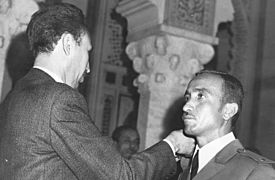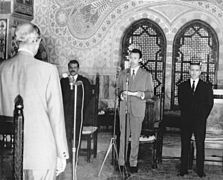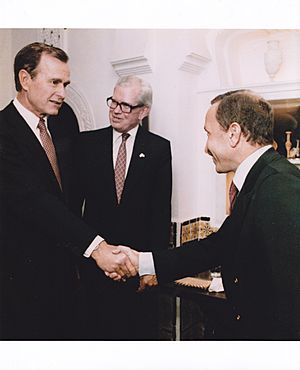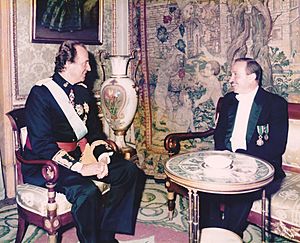Djelloul Khatib facts for kids
Quick facts for kids
Djelloul Khatib
|
|
|---|---|
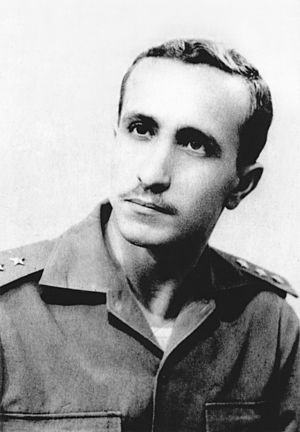 |
|
| Chief of Staff of the Ministry of Defence | |
| In office 27 September 1962 – 19 June 1965 |
|
| Preceded by | Position established |
| Succeeded by | Colonel Abdelkader Chabou |
| Chief of Staff of the President of the Republic | |
| In office 19 June 1965 – 14 October 1970 |
|
| Preceded by | Position established |
| Succeeded by | Doctor Amir Benaïssa |
| Governor of Batna | |
| In office 1973–1976 |
|
| Governor of Constantine | |
| In office 1976 – 30 November 1980 |
|
| Preceded by | Amal Akbi |
| Succeeded by | Chaabane Ait-Abderrahim |
| Governor of Oran | |
| In office 1 December 1980 – 11 January 1982 |
|
| Succeeded by | Mohamed Rachid Merazi |
| Secretary of State in Charge of the Civil Service | |
| In office 12 January 1982 – 22 January 1983 |
|
| Preceded by | Position established |
| Ambassador to Argentina | |
| In office 23 January 1984 – 1 January 1988 |
|
| Ambassador to Spain | |
| In office 2 January 1988 – 20 September 1989 |
|
| Personal details | |
| Born |
Djelloul Khatib
8 October 1936 Algiers, Algeria |
| Died | 6 February 2017 (aged 80) |
| Political party | National Liberation Front |
| Military service | |
| Allegiance | 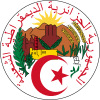 |
| Branch/service |
|
| Years of service |
|
| Rank | Commandant |
| Battles/wars | Battle of Algiers (1956–57) Suez Crisis Algerian war of independence |
| Awards | Ordre du merite national Orden del libertador San Martín |
Djelloul Khatib (born October 8, 1936 – died February 6, 2017) was an important figure in Algeria. He was known as "Commandant Djelloul." He fought for Algeria's independence and later became a key public servant. During the war, he helped make the National Liberation Army (NLA) more professional. After Algeria became independent, he played a big role in building up the country's government services.
Contents
Fighting for Independence
Djelloul Khatib grew up in the Casbah of Algiers. In 1956, he joined the fight for freedom in the Battle of Algiers (1956–57). He was then sent to Egypt by the National Liberation Army (NLA) for military training.
When the Suez Crisis started, he joined the fighting in Port Said. Later, he became an officer at the NLA's Eastern base near the border with Tunisia. He joined the First Supply Company. This group's job was to bring weapons and supplies from Tunisia to the mountains of Kabylia. The fighting there was very intense.
Crossing the Morice Line
Djelloul Khatib often crossed the Morice Line. This was a heavily guarded border fence built by the French. He worked as a link between the NLA's main command and the fighting units. He connected with groups in the Aures region and Kabylia. One of his first missions was to meet Colonel Amirouche, a hero of the independence war.
To show the world what was happening, Khatib helped media reporters. He brought them from the Tunisian border to the fighting areas. He worked with journalists like Nevill Barbour from the BBC. He also worked with Stevan Labudovic, Dirk Alvermann, and Nino Pulejo. He also helped set up the NLA's radio communication team.
By 1958, Djelloul Khatib became Secretary General of the NLA's Northern Zone Staff. Later, he became Secretary General of the NLA General Staff. He worked directly under Houari Boumédiène. In the last years of the war, he helped make the Liberation Army more professional. He also worked to strengthen the support needed for the fight. During these years, he became a close advisor to Boumediene.
After Independence: A Public Servant
Chief of Staff
After Algeria gained independence, Djelloul Khatib was appointed Chief of Staff. At just 26 years old, he became Chief of Staff of the Ministry of Defence (1962-1965). Then, he became Chief of Staff of the Presidency (1965-1970). President Boumediene gave him many important tasks.
Khatib created the Comedor, a special group that planned how to develop the capital city of Algiers. Famous architects like Oscar Niemeyer worked with this group. Khatib also arranged for the return of the ashes of Emir Abdelkader. Emir Abdelkader was an early Algerian leader who fought against French rule. He had died in exile in Damascus.
Khatib also helped with talks that led to the Franco-Algerian agreement of 1968. This agreement still guides how Algeria and France work together. He was also one of the people who made the Algiers Panafrican Festival of 1969 a success. President Boumediene also asked Khatib to organize visits for important people. These included Che Guevara and Senator Ted Kennedy. The meeting with Senator Kennedy helped start a long partnership between the United States and Algeria in the oil and gas industry.
Working with Oscar Niemeyer
As the head of Comedor, Khatib worked closely with the famous architect Oscar Niemeyer. Their teamwork led to the building of important projects. One example is the first university in Constantine since Algeria's independence. Other plans from this time, even if not built, are still a key part of Oscar Niemeyer's work.
Governor of Provinces
Khatib was appointed Wali (Governor) of several provinces. He was Governor of Batna (1973-1976). Then, he was Governor of Constantine (1976-1980), which is Algeria's third-largest city. Finally, he was Governor of Oran (1980-1982), the country's second-largest city.
Secretary of State
He was named Secretary of State in charge of the Civil Service (1982-1984). During this time, Prime Minister Abdelghani asked him to help with the visit of George H. W. Bush in 1983. This was the first time a Vice-President of the United States visited Algeria.
Ambassador
Djelloul Khatib then became the Ambassador to Argentina (1982-1984). He worked to improve economic and technical cooperation between Algeria and Argentina. This included working together on peaceful nuclear energy. By 1989, these efforts led to the building of the NOUR nuclear research reactor in Algeria. As a thank you for his work, Argentina's President Raul Alfonsin gave him the "Orden del Libertador San Martín" award.
He was later the Ambassador to Spain from 1988 to 1989. There, he helped gain support for the Maghreb–Europe Gas Pipeline. This pipeline connects Algeria, Morocco, and Spain. He also helped with unofficial peace talks about the Basque conflict.
See also
 In Spanish: Djelloul Khatib para niños
In Spanish: Djelloul Khatib para niños
 | Shirley Ann Jackson |
 | Garett Morgan |
 | J. Ernest Wilkins Jr. |
 | Elijah McCoy |


